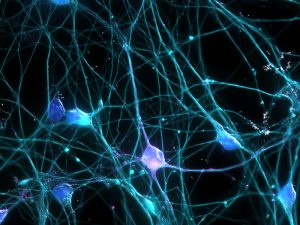Enter your address to receive notifications about new posts to your email.
Articles tagged Rare Diseases
(8 results)
-
Naturally occurring small molecules correct mutant proteins in living cells
Yeast screens explore the therapeutic potential of chemical rescue. Anyone who’s worked in a lab knows that sinking feeling of discovering that the temperature of an incubator, carefully set the night before, has crept up high enough to ruin the experiment. While such a mishap usually spells disaster, occasionally, it can lead to an unexpected…
-
Mito-nuclear interactions could influence disease variability
A new fruit fly model of Leigh syndrome reveals the importance of mtDNA variation. Inherited mitochondrial disorders pose a perplexing problem to researchers and clinicians: people with the same condition can have vastly different clinical manifestations, even if they share the same mutation. For example, a neurodegenerative disorder called Leigh syndrome, which can be caused…
-
Off-balance mice shed light on inner ear development
The “hyperspin” long-range enhancer deletion recapitulates disease phenotypes. In recent years, improvements in genetic testing have made it much easier to discover the causes of rare genetic diseases, but sequence data can also present new puzzles. Take split hand/-foot malformation-1 syndrome (SHFM1), which causes limb deformities, such as joined fingers, and sometimes deafness. Candidate culprits…
-
Inside the genome of a deadly desert disease
Rhinocladiella mackenziei is a fungus that infects the human brain. It is the most common cause of neurological fungal infections in arid regions of the Middle East, and it is fatal in 70% of cases. However, little is understood about this lethal pathogen—not even its natural habitat. To learn more about the biology of R.…
-
Genetics Society of America honors Philip Hieter with 2018 George W. Beadle Award
The Genetics Society of America (GSA) is pleased to announce that Philip Hieter is the recipient of the 2018 George W. Beadle Award, bestowed in honor of his outstanding contributions to the genetics research community. Hieter is Professor of Medical Genetics in the Michael Smith Laboratories at the University of British Columbia. Geneticists across the…
-
Zebrafish offer hope for understanding severe form of epilepsy
The prolonged and severe seizures suffered by those with pyridoxine-dependent epilepsy (PDE) can lead to brain dysfunction and death if not treated. Standard antiepileptic drugs are typically ineffective for people with this rare genetic disorder—instead, they need high doses of vitamin B6 in the form of pyridoxine or pyridoxal 5′-phosphate. But even with this supplementation,…
-
How model organism researchers can help solve rare disease puzzles
For many of the roughly 300 million people around the world with rare diseases, the road to diagnosis can be long, painful, expensive, and disheartening. Around eighty percent of very infrequently seen undiagnosed diseases are estimated to have a genetic basis, but even with modern DNA sequencing techniques, the causes are often unclear. In these…
-
Make Me a Match: biomedical networking for rare disease gene discovery
A Canadian network focused on rare diseases is playing matchmaker between clinicians and model organism researchers. Over half of children with rare, inherited monogenic diseases lack a molecular diagnosis. There are an estimated 7,000 monogenic diseases possible, and only about half of those have been implicated in human disease. The Rare Diseases: Models & Mechanisms…







